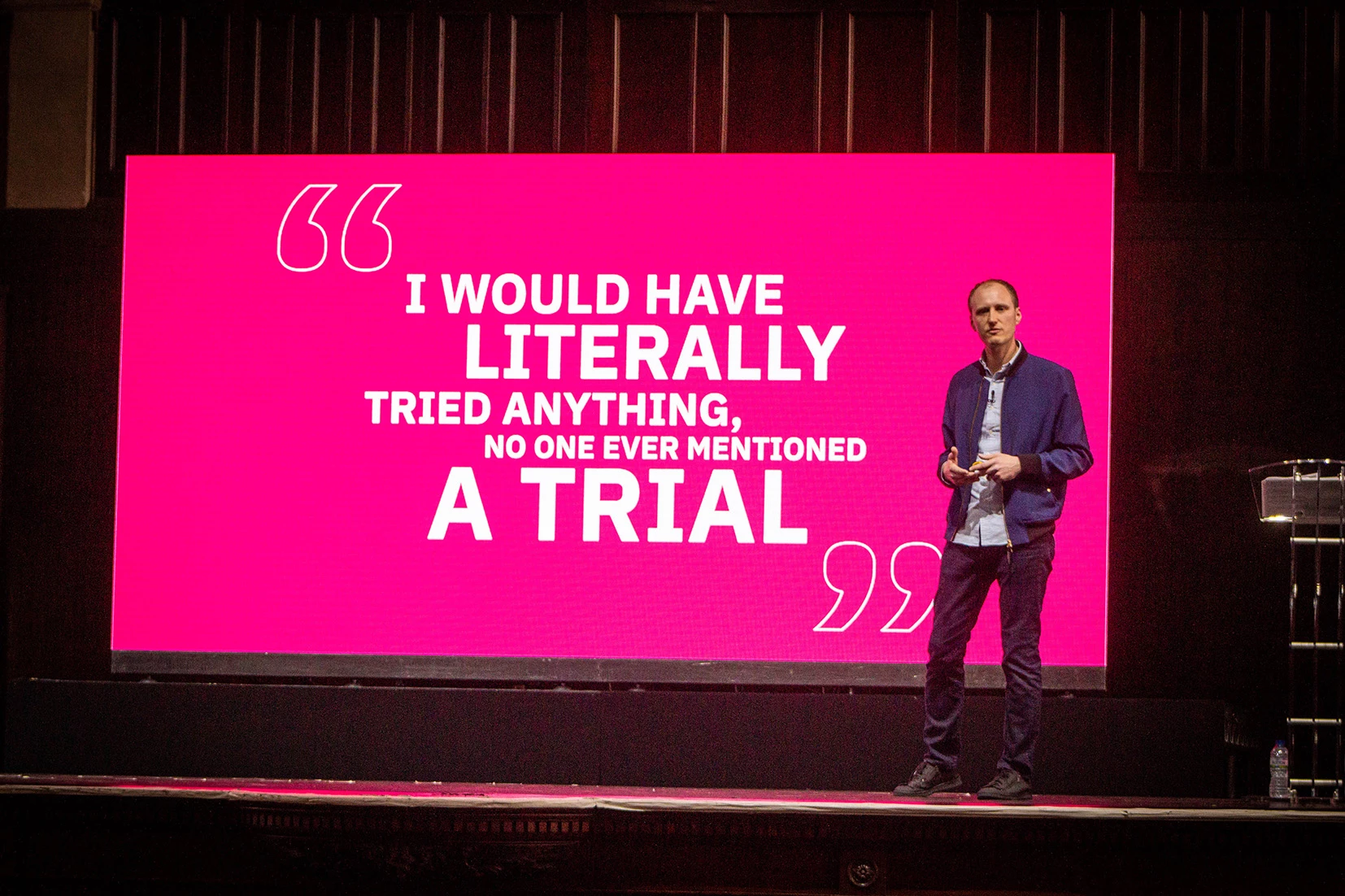
Partner Article
Havas Lynx Group launches white paper to address $40bn clinical trials challenge
Patient centricity is a misused buzzword to signpost all manner of token efforts, but the real winners will be those who embrace it throughout their organisation. Not just because it’s the right thing to do, but because it is the only way to fix a broken model.
That is the clear message from Havas Lynx Group as it marks Clinical Trials Day (May 20th) with the launch of a new white paper designed to provoke conversation and offer potential solutions to a problem that is costing lives and the sector more than $40bn every year.
‘Patient Centricity on Trial’ explores how some of the world’s most innovative companies are bringing the patient experience front and centre in clinical trials and reaping the benefits of doing so.
From protocol design to recruitment and retention, the paper argues that it is about seeing every touchpoint that a patient or caregiver has with a trial as an opportunity to improve experience and therefore engagement.
“Today, more than 40 million patients are needed in around 300,000 clinical trials worldwide every year,” explained Claire Knapp, Managing Director of Havas Lynx, part of the Havas Lynx Group.
“These are staggering numbers for the clinical trials arena to meet, especially when you consider that 85% of trials are failing to retain enough patients.”
She continued: “The challenges are mounting with exorbitant costs and a complex environment for clinical research, where the era of the blockbuster drug has made way for increasing niched drugs that cater to smaller, harder to find populations.
“All of these reasons have driven the need for a new conversation and this is what we are hoping to achieve with our latest white paper, which looks at the clinical programme from start to finish and how working with patients as partners could have a huge impact and make clinical trials more successful.
“We want this to be a collaborative piece and explore what other companies are doing, encouraging best practice sharing as opposed to working in silos.”
Havas Lynx Group launched Havas Lynx Faze last year, a specialist clinical trial recruitment agency that focuses on helping clients design a better trial experience for patients.
This approach puts the patient front and centre of the trial and seamlessly uses data technology and media to reduce the time and cost of finding and retaining patients.
‘Patient Centricity on Trial’ reinforces this strategy and outlines six main areas of improvement that will help address some of the issues being faced. These include:
Awareness: Advertise to people and not participants, use techniques and tools from the consumer industry, build HCP advocates and position clinical trials as a treatment option to make them part of the everyday treatment conversation.
Design: Use a consumer approach to alter the user experience mentality, design trials to fit the patient’s lifestyles and inclusive protocols to ease the clinical trial eligibility criteria.
Recruit: Multi-channel advertising, utilising digital and print channels, encourage step-by-step educational information about the trial process and improve referral and application systems to remove complexity for both site staff and patients.
Consent: Make consent information a two-way exchange, constant communication to keep patient and caregivers informed throughout the process and eConsent forms to provide a positive digital experience.
Retain: Improve the end-to-end experience through more touchpoints to keep the patient and caregiver at the heart of the trial, introduction of site-less trials and the use of technology to aid the experience and boost retention.
Follow-up: Create a holistic experience where patients are informed between the time their participation ends and the trial results are announced along with sharing results to encourage engagement and participation in future clinical trials.
Mark Evans, Managing Director at Havas Lynx Faze, concluded: “Clinical trials are at a Blockbuster Video vs. Netflix moment. The former had the chance to evolve but chose to hold onto a dying business model. We all know trials aren’t working, yet it’s so tempting to hold onto the way we’ve always done things. “For pharma, this isn’t about ‘brave’ business decisions. It’s about evolving to meet our customer demand, instead of following the tried-and-failed Blockbuster model of slowly losing relevance. Clinical trials are broken and only patients can help fix them – if we let them.”
This was posted in Bdaily's Members' News section by Russ Cockburn .








 Putting in the groundwork to boost skills
Putting in the groundwork to boost skills
 £100,000 milestone drives forward STEM work
£100,000 milestone drives forward STEM work
 Restoring confidence for the economic road ahead
Restoring confidence for the economic road ahead
 Ready to scale? Buy-and-build offers opportunity
Ready to scale? Buy-and-build offers opportunity
 When will our regional economy grow?
When will our regional economy grow?
 Creating a thriving North East construction sector
Creating a thriving North East construction sector
 Why investors are still backing the North East
Why investors are still backing the North East
 Time to stop risking Britain’s family businesses
Time to stop risking Britain’s family businesses
 A year of growth, collaboration and impact
A year of growth, collaboration and impact
 2000 reasons for North East business positivity
2000 reasons for North East business positivity
 How to make your growth strategy deliver in 2026
How to make your growth strategy deliver in 2026
 Powering a new wave of regional screen indies
Powering a new wave of regional screen indies